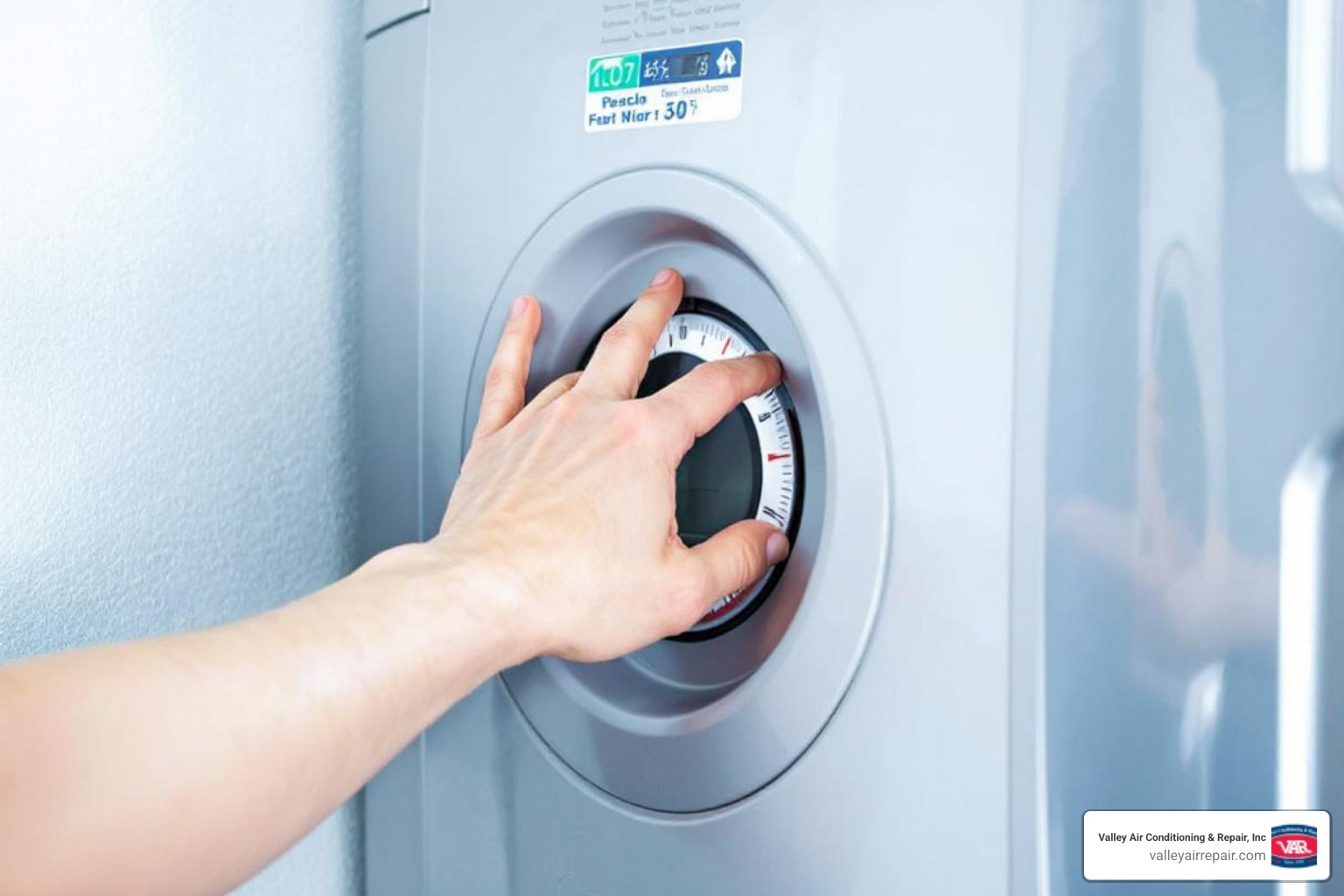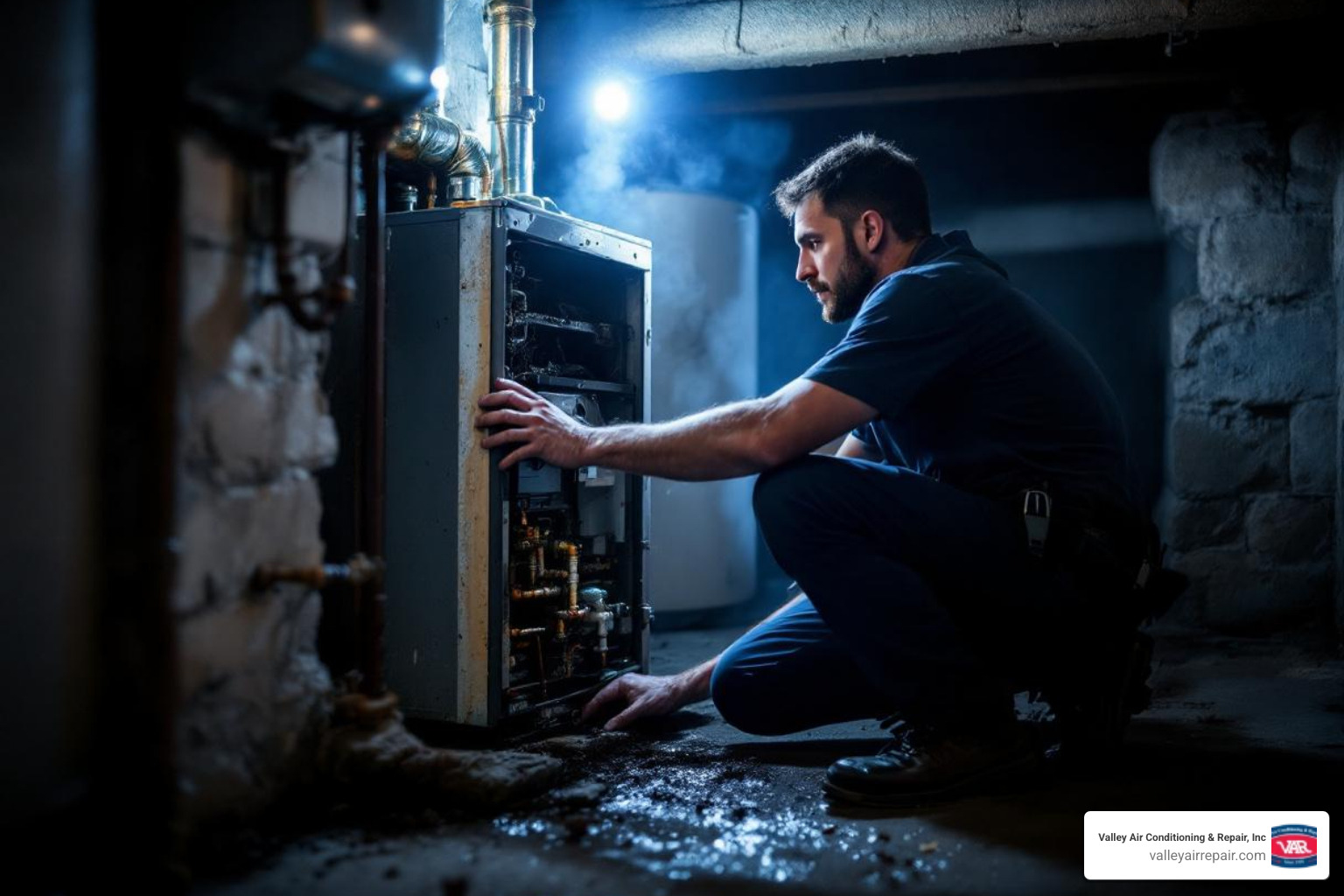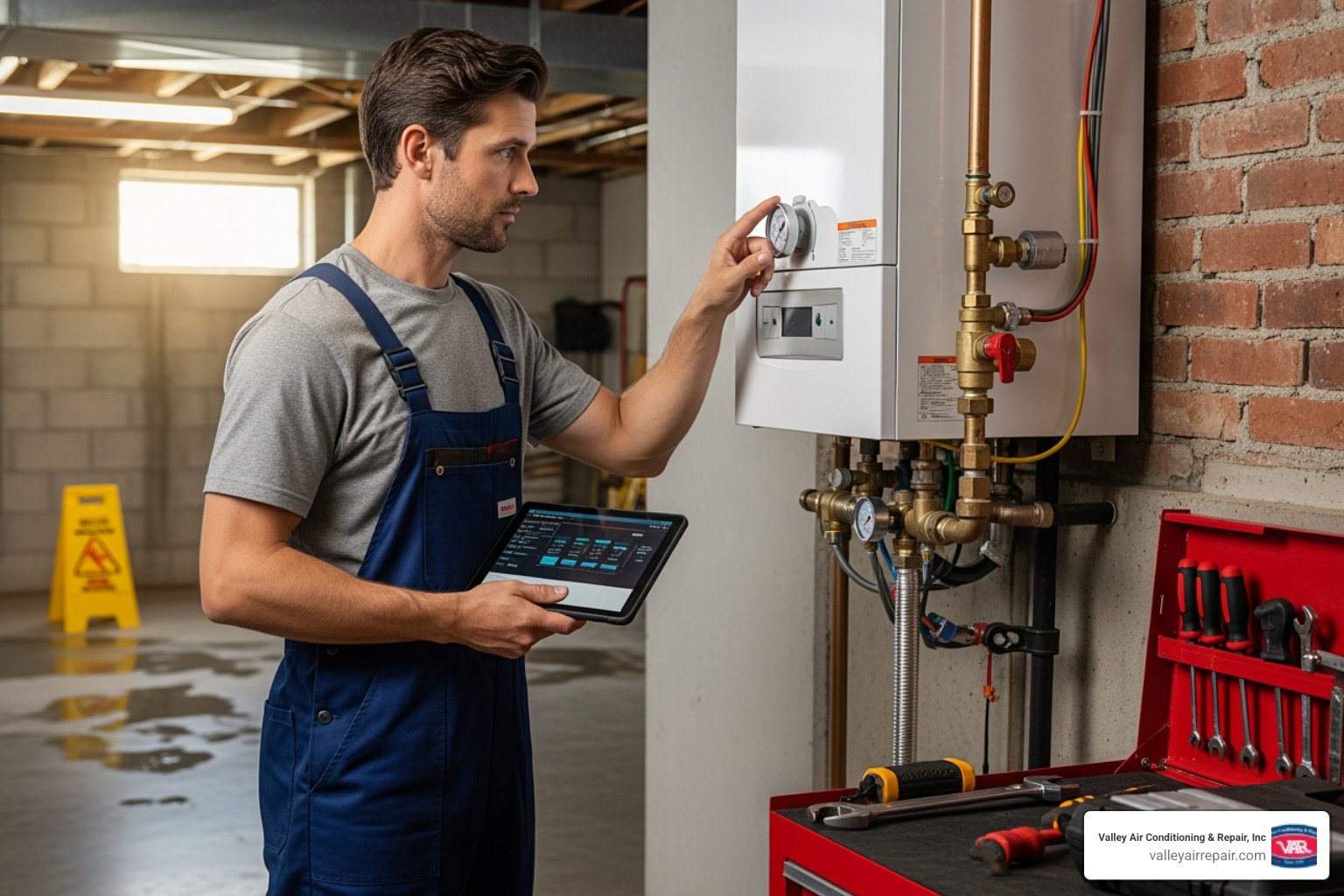Your air conditioning system relies on more than just fans and filters to do its job. One of the most overlooked components is the sensor, which reads the temperature of the air and sends that data to your AC system. When the sensor is working right, your system knows when to turn on and off to keep you comfortable. When something goes wrong with the sensor, though, things get off balance quickly.
Homeowners in Parlier might notice their systems kicking on when not needed, running longer than usual, or shutting off too early. These issues can be tied to a faulty or misaligned sensor. Understanding what causes sensor problems and how to address them can save time and reduce wear on the entire system. Since July is one of the hottest months in Parlier, getting your system checked now makes a noticeable difference.
Common AC Sensor Problems
Sensor issues are not always easy to spot, but they can disrupt your home’s comfort and cause your system to work harder than it should. If the temperature readings are inaccurate, your AC will respond based on faulty information. This can lead to uneven cooling or unnecessary system strain.
Three of the most common sensor issues homeowners experience include:
- Misaligned sensors. If the sensor is not positioned in front of the evaporator coil, it may not get an accurate reading. This mistake often happens after someone moves or bumps the sensor during cleaning or maintenance.
- Damaged sensors. Sensors can wear out over time due to age, moisture exposure, or electrical issues. A damaged sensor may produce inconsistent readings or none at all.
- Dirt and debris buildup. Dust collecting on the sensor can interfere with its ability to detect air temperature properly. This is especially common in homes with high indoor dust or poor airflow.
For example, your AC might run for five minutes and shut off even though the house hasn’t cooled down. It restarts again shortly after. This rapid cycling is often the result of a sensor reading that says the home is already at the desired temperature. Left unchecked, this can lead to higher energy use and even damage to the compressor.
Addressing these problems early can improve efficiency and help protect your system from more serious repairs later. Regular checks and maintenance, especially during peak summer in Parlier, go a long way toward catching minor issues before they become major ones.
Signs Your AC Sensor Might Be Failing
When an AC sensor starts acting up, the signs can seem confusing. Some may assume the unit just needs a quick reset, but the symptoms often point to something more. Sensor-related problems can mimic issues caused by thermostats or refrigerant levels, which makes it even more important to pinpoint the problem correctly.
Watch for these common warning signs in your system:
1. Frequent short cycles. If your AC turns on and off constantly, the sensor could be misreading the indoor temperature and causing the system to cut off early.
2. Inconsistent temperatures. Your home may feel warm in the mornings and too cold at night if the sensor isn’t tracking temperature correctly throughout the day.
3. Poor airflow or minimal cooling. While this can also be related to other AC problems, an incorrect reading caused by the sensor will tell the unit to stop cooling sooner than it should, making it feel like there’s little to no cold air coming out.
4. Random system restarts. A faulty sensor may trigger unexpected restarts throughout the day without any changes in thermostat settings.
If you notice one or more of these symptoms, getting your system inspected can help identify whether the sensor is the root cause. Many of these issues appear during the hottest parts of the year when your system is working its hardest, like right now in mid-July. Waiting to fix it can lead to more expensive repairs down the line. Continuing to use a system with a bad sensor doesn’t just affect your comfort. It could affect how long your AC lasts.
Steps for Troubleshooting AC Sensor Issues
If your air conditioner isn’t keeping up with the heat in Parlier, a faulty sensor could be the reason. While some sensor problems seem simple, fixing them the wrong way can cause more damage. Still, being aware of how to identify the basic issues helps you know what to expect if your system needs service.
Here are the first few steps our professionals take when checking a sensor problem:
1. Check the sensor’s position. The sensor should sit near the evaporator coil but not touch it. If it’s shifted out of place, the system may not read the temperature correctly. This can cause short cycling or cooling that doesn’t match your thermostat setting.
2. Look for dirt and debris. A dusty sensor can’t measure temperature accurately. It doesn’t take much buildup to block the sensor from working the way it should. Our technicians typically inspect this area and clean it safely during a standard AC maintenance visit.
3. Inspect for damage. If the wire connected to the sensor is loose or if there’s corrosion, it can affect the signal being sent to the control board. This kind of issue needs to be handled carefully to avoid additional electrical damage.
4. Test system responses. If adjustments don’t fix the issue right away, a technician may run tests to see how the unit responds to various temperature changes. This helps confirm if sensor misreadings are the source of the problem or if other components are involved.
Trying to fix a sensor without proper tools or training isn’t recommended. Wiring issues and sensor placement need more than a simple visual check. This is where professional service makes a difference. A lot of home AC sensors that go unchecked end up pushing the system harder, especially on hot days, leading to breakdowns or early replacements that could have been avoided.
When to Bring In Our Professionals
There’s a point where a sensor problem goes from being an inconvenience to a risk for full system failure. If adjusting your thermostat doesn’t help or if the system starts short cycling more often, it’s time to get help. AC units in Parlier during summer need to operate under higher demand, so even small issues cause noticeable discomfort fast.
Here’s when it makes sense to bring in our technicians:
- The system is constantly turning on and off.
- You’ve noticed uneven cooling month after month.
- Repairs have been made before but haven’t solved the problem.
- Your AC isn’t responding to changes in the thermostat correctly.
- The coil area or sensor appears damaged or loose.
Our technicians have the experience to trace the issue, make the repair safely, and find out if any deeper problem is forming behind it. Often during scheduled AC maintenance, sensor troubles are one of the first things checked. Getting it fixed quickly can prevent longer downtimes later when the system is under more stress.
Ensuring Optimal Performance for Your AC
Proper sensor function plays a bigger role in indoor comfort than many people realize. When the sensor doesn’t work correctly, the entire system loses its ability to manage temperature properly. It either runs too much, which strains components, or shuts off too soon, leaving your home warm and uncomfortable. Either way, it stops doing the job you depend on when heat peaks across Parlier.
Regular AC maintenance in Parlier is the best way to avoid long-term sensor trouble. By having trained professionals check your system’s performance and inspect the sensor position, wiring, and reading accuracy, you prevent the cycle of minor issues becoming costly repairs. Keeping your AC efficient and dependable starts with making sure the basics like the air sensor are in proper condition year after year.
Even if your AC is still running, signs like uneven cooling or fast cycling are worth paying attention to. These small indicators mean it's time to check if the sensor is sending the wrong signals. Acting early keeps your system running better, longer, even when the summer heat in Parlier hits its highest.
If you have noticed rapid cycling, inconsistent cooling, or other irregularities, now is a great time to consider AC maintenance in Parlier to ensure your system operates efficiently through the hottest months. Valley Air Conditioning & Repair, Inc. is here to provide expert support backed by years of experience. For a quick estimate or to book a service visit, please contact us today.




.webp)










